Can you spot bleed while pregnant
Bleeding and spotting from the vagina during pregnancy
Bleeding and spotting from the vagina during pregnancy are common
If you bleed or spot during pregnancy, it doesn’t always mean there’s a problem but in some cases they may be signs of a problem for you or your baby’s health
If you have heavy bleeding, call your health care provider right away
Tell your provider about any bleeding or spotting you have during pregnancy
Bleeding and spotting from the vagina during pregnancy are common. Up to 1 out of 4 (up to 25%) of all pregnant women have some bleeding or spotting during their pregnancy.
Bleeding and spotting in pregnancy don’t always mean there’s a problem, but they can be a sign of miscarriage or other serious complications. Miscarriage is when a baby dies in the womb before 20 weeks of pregnancy.
Call your health care provider if you have any bleeding or spotting, even if it stops. It may not be caused by anything serious, but your provider needs to find out what’s causing it.
What’s the difference between bleeding and spotting?
Bleeding or spotting can happen anytime, from the time you get pregnant to right before you give birth. Spotting is light bleeding. It happens when you have a few drops of blood on your underwear. Spotting is so light that the blood wouldn’t cover a panty liner. Bleeding is when the blood flow is heavier, enough that you need a panty liner or pad to keep the blood from soaking your underwear and clothes.
What should you do if you have bleeding or spotting during pregnancy?
Call your health care provider if you have any kind of bleeding during pregnancy and do these things:
- Keep track of how heavy your bleeding is, if it gets heavier or lighter, and how many pads you are using.
- Check the color of the blood. Your provider may want to know. It can be different colors, like brown, dark or bright red.
- Don’t use a tampon, douche or have sex when you’re bleeding.

Call your health care provider right away at any time during pregnancy or go to the emergency room if you have:
- Heavy bleeding
- Bleeding with pain or cramping
- Dizziness and bleeding
- Pain in your belly or pelvis
What causes bleeding or spotting early in pregnancy?
It’s normal to have some spotting or bleeding early in pregnancy. Bleeding or spotting in the first trimester may not be a problem. It can be caused by:
- Having sex
- An infection
- Implantation. When a fertilized egg (embryo) attaches to the lining of the uterus (womb) and begins to grow.
- Hormone changes. Hormones are chemicals made by the body.
- Changes in your cervix. The cervix is opening to the uterus that sits at the top of the vagina.
- Certain types of testing during pregnancy like an amniocentesis or Chorionic villus sampling (CVS). These are tests that are done to check for genetic abnormalities in your baby.
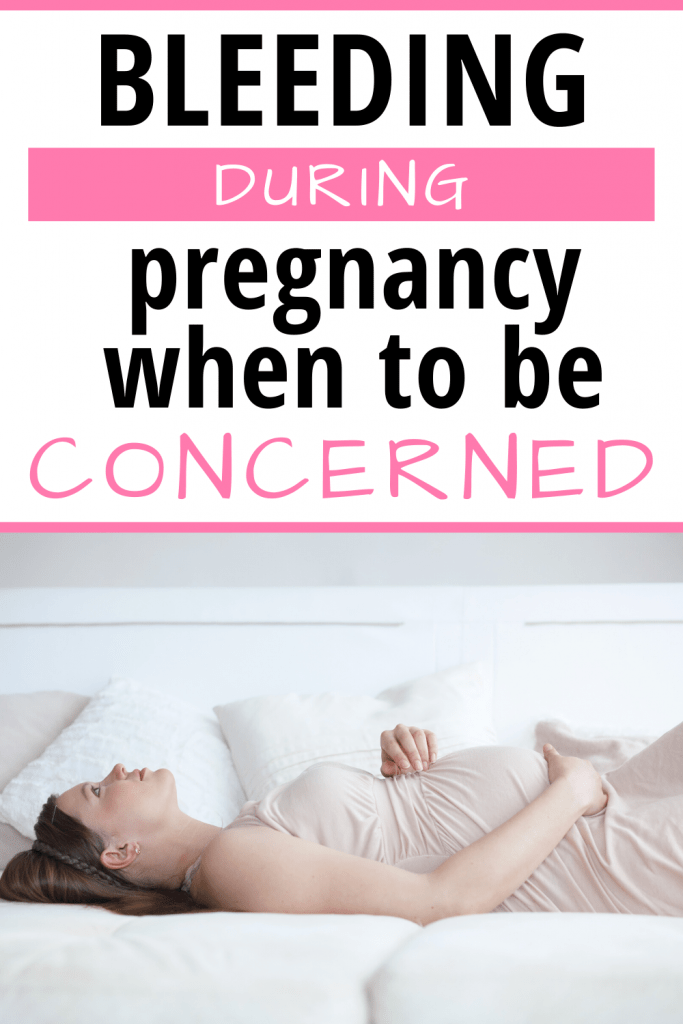 Genetic abnormalities are changes in the genes that are passed down to a baby from mom or dad. These genetic changes can cause health problems for a baby.
Genetic abnormalities are changes in the genes that are passed down to a baby from mom or dad. These genetic changes can cause health problems for a baby. - Problems related to smoking. If you smoke, it’s best to stop before pregnancy or as soon as you know you’re pregnant.
Sometimes bleeding or spotting in the first trimester is a sign of a serious problem, like:
- Miscarriage. Almost all women who miscarry have bleeding or spotting before the miscarriage.
- Ectopic pregnancy. This is when a fertilized egg implants itself outside of the uterus and begins to grow. An ectopic pregnancy cannot result in the birth of a baby. It can cause serious, dangerous problems for the pregnant woman.
- Molar pregnancy. This is when a mass of tissue forms inside the womb, instead of a baby. Molar pregnancy is rare.
What causes bleeding or spotting later in pregnancy?
Bleeding or spotting later in pregnancy may be caused by:
- Labor
- Having sex
- An internal exam by your health care provider
- Problems with the cervix, like an infection, growths, inflammation or cervical insufficiency.
 This is when a woman’s cervix opens too early. Inflammation of the cervix is when it may be painful, swollen, red or irritated.
This is when a woman’s cervix opens too early. Inflammation of the cervix is when it may be painful, swollen, red or irritated.
Bleeding or spotting later in pregnancy may be a sign of a serious problem, like:
- Preterm labor. This is labor that happens too early, before 37 weeks of pregnancy.
- Placenta previa. This is when the placenta lies very low in the uterus and covers all or part of the cervix.
- Placenta accreta. This is when the placenta grows into the wall of the uterus too deeply.
- Placental abruption. This is when the placenta separates from the wall of the uterus before birth.
- Uterine rupture. This is when the uterus tears during labor. This happens very rarely. It can happen if you have a scar in the uterus from a prior cesarean birth (also called c-section) or another kind of surgery on the uterus.
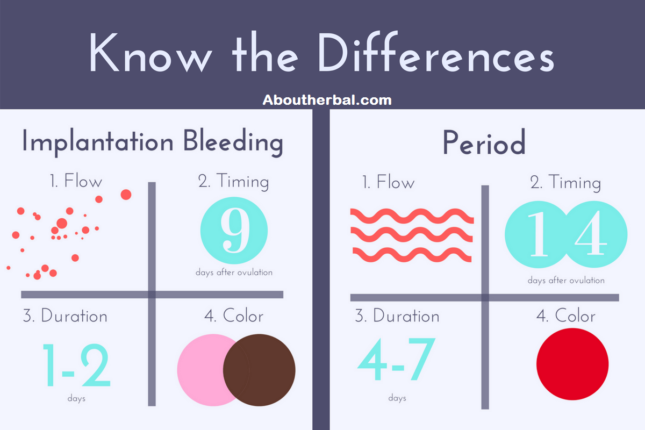 A c-section is surgery in which your baby is born through a cut that your doctor makes in your belly and uterus.
A c-section is surgery in which your baby is born through a cut that your doctor makes in your belly and uterus.
How are bleeding and spotting treated?
Your treatment depends on what caused your bleeding. You may need a medical exam and tests.
Most of the time, treatment for bleeding or spotting is rest. Your provider may also suggest treatments like:
- Take time off from work and stay off your feet for a little while
- You may need medicine to help protect your baby from Rh disease. Rh disease is when your blood and baby’s blood are incompatible (can’t be together). This disease can cause serious problems — even death — for your baby.
- Don’t have sex, douche or use tampons
- If you have heavy bleeding, you may need a hospital stay or surgery
Last reviewed April 2020
Vaginal bleeding - NHS
Bleeding during pregnancy is relatively common and does not always mean there's a problem – but it can be a dangerous sign.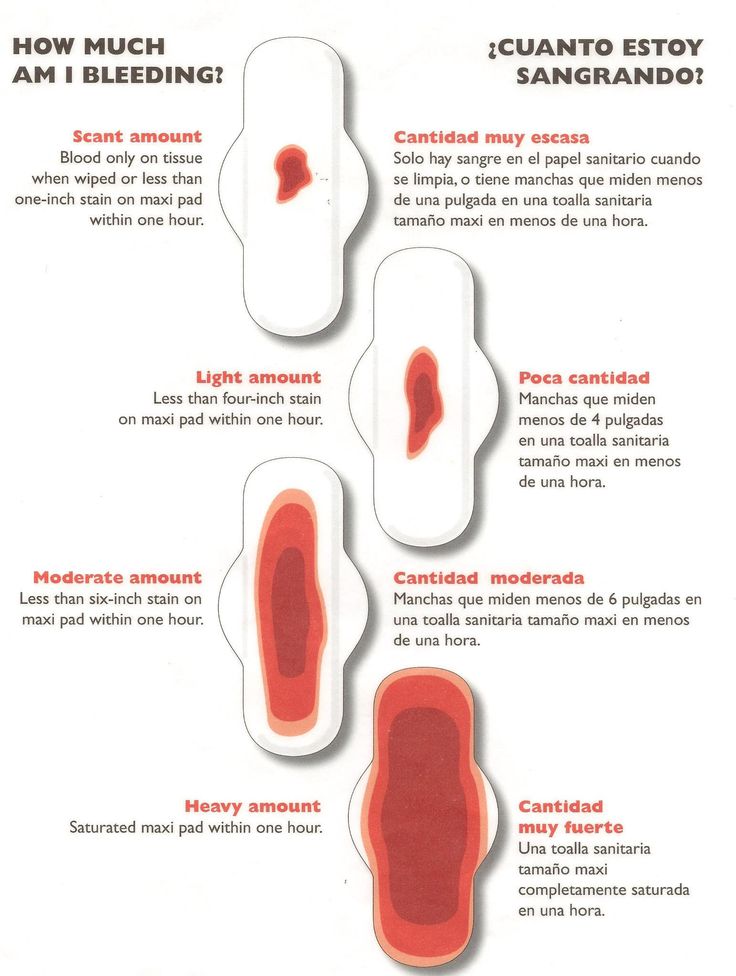
Urgent advice: Call your midwife or GP immediately if:
- you have any bleeding from your vagina
Causes of bleeding in early pregnancy
Implantation bleeding
In early pregnancy, you might get some harmless light bleeding, called "spotting". This is when the developing embryo plants itself in the wall of your womb. This type of bleeding often happens around the time your period would have been due.
Cervical changes
Pregnancy can cause changes to the cervix, and this may sometimes cause bleeding – after sex, for example.
Miscarriage or ectopic pregnancy
During the first 12 weeks of pregnancy, vaginal bleeding can be a sign of miscarriage or ectopic pregnancy.
However, if you bleed at this stage of pregnancy it's likely you will go on to have normal and successful pregnancies.
Treating bleeding in early pregnancy
You may be offered a medicine called progesterone to stop bleeding in early pregnancy. This will only be recommended if you've had a scan to confirm you're pregnant and you've had a miscarriage before.
Your doctor may recommend you take the medicine twice a day until you're 16 weeks pregnant.
Miscarriage
If a pregnancy ends before the 24th week, it's called a miscarriage. Around 1 in 5 pregnancies ends this way.
Many early miscarriages (before 14 weeks) happen because there is something wrong with the baby. There can also be other causes of miscarriage, such as hormone or blood clotting problems.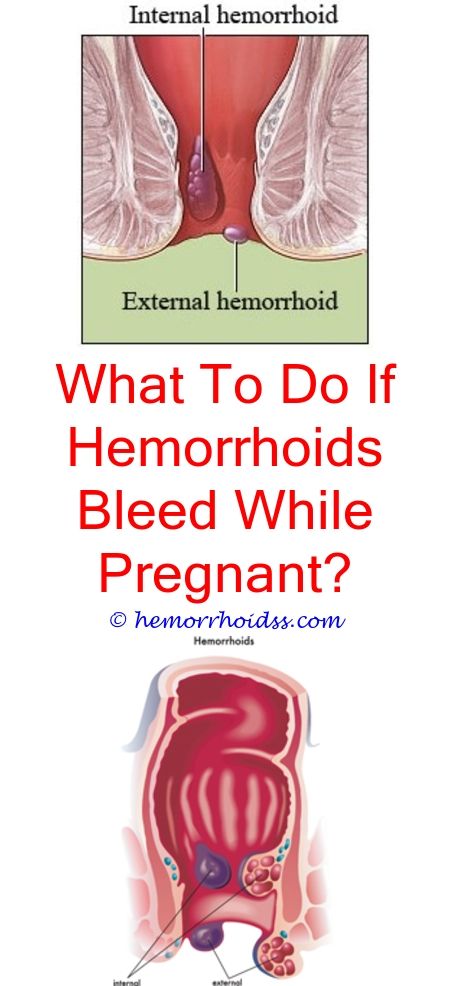
Most miscarriages occur during the first 12 weeks (3 months) of pregnancy and, sadly, most cannot be prevented. Other symptoms of miscarriage include:
- cramping and pain in your lower abdomen
- a discharge or fluid from your vagina
- a discharge of tissue from your vagina
- no longer experiencing the symptoms of pregnancy, such as feeling sick
If you have bleeding or any of the symptoms above, contact your midwife or GP straightaway.
Ectopic pregnancy
An ectopic pregnancy is when a fertilised egg implants outside the womb – for example, in the fallopian tube.
It can cause bleeding and is dangerous because the fertilised egg cannot develop properly outside the womb. The egg has to be removed, which can be done through an operation or with medicines.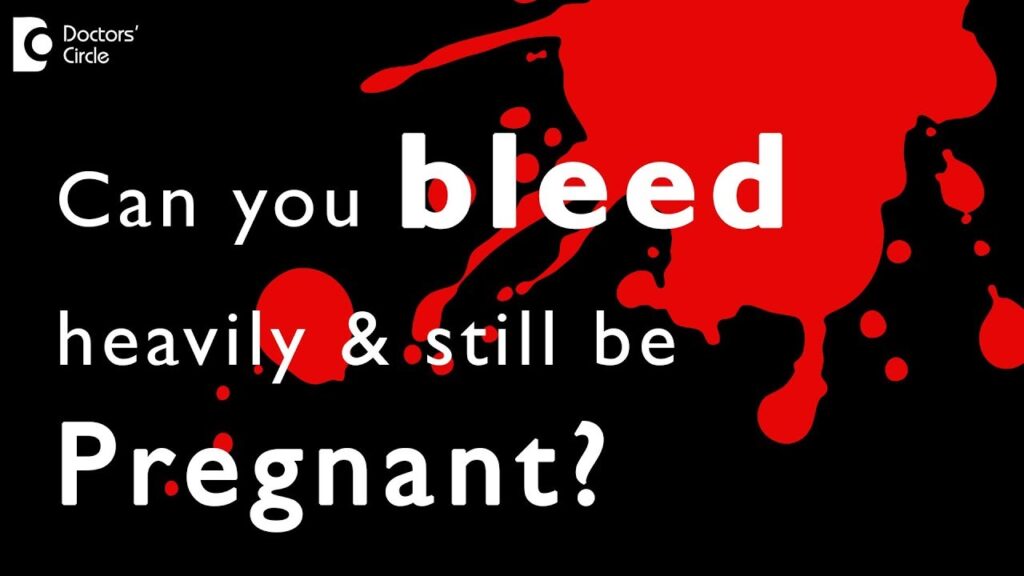
Symptoms of an ectopic pregnancy tend to develop in the 6th week of pregnancy but can happen later.
Other signs of ectopic pregnancy can include:
- tummy pain low down which may be on one side
- vaginal bleeding or a brown, watery discharge
- pain in the tip of your shoulder
- discomfort when peeing or pooing
Call 111 if you have symptoms of an ectopic pregnancy.
Causes of bleeding in later pregnancy
Cervical changes
These can lead to bleeding, particularly after sex.
Vaginal infections
Your midwife or doctor can discuss tests and treatment with you.
A 'show'
This is when the plug of mucus that has been in the cervix during pregnancy comes away, signalling that the cervix is getting ready for labour to start.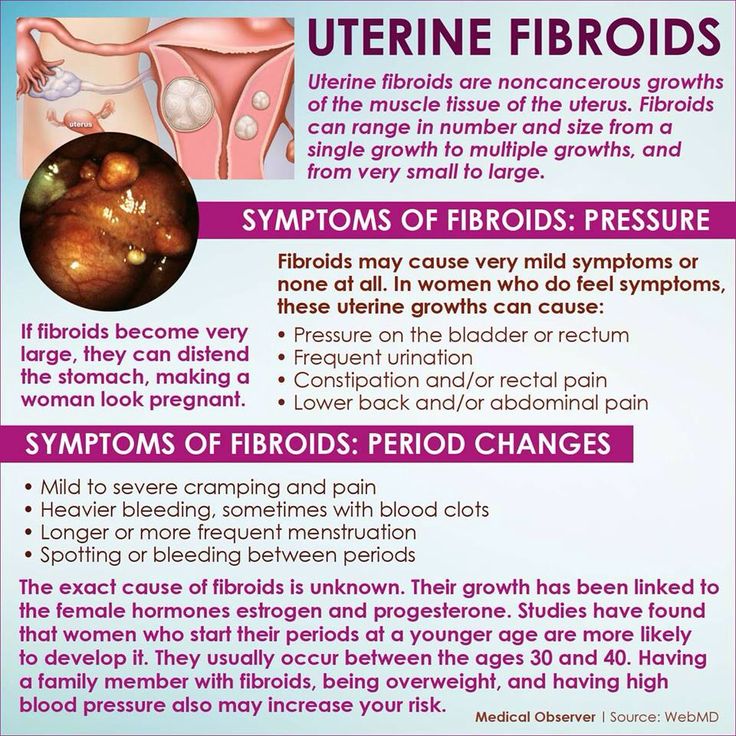 It may happen a few days before contractions start or during labour itself.
It may happen a few days before contractions start or during labour itself.
Find out about the signs of labour and what happens in labour.
Placental abruption
This is a serious condition in which the placenta starts to come away from the womb wall. Placental abruption usually causes stomach pain, and this may occur even if there is no bleeding.
Low-lying placenta (placenta praevia)
This is when the placenta is attached in the lower part of the womb, near to or covering the cervix. Bleeding from a low-lying placenta can be very heavy, and put you and your baby at risk.
You may be advised to go into hospital for emergency treatment, and a caesarean section will usually be recommended. The Royal College of Obstetricians and Gynaecologists has more information on placenta praevia.
Vasa praevia
This is a rare condition where the baby's blood vessels run through the membranes covering the cervix.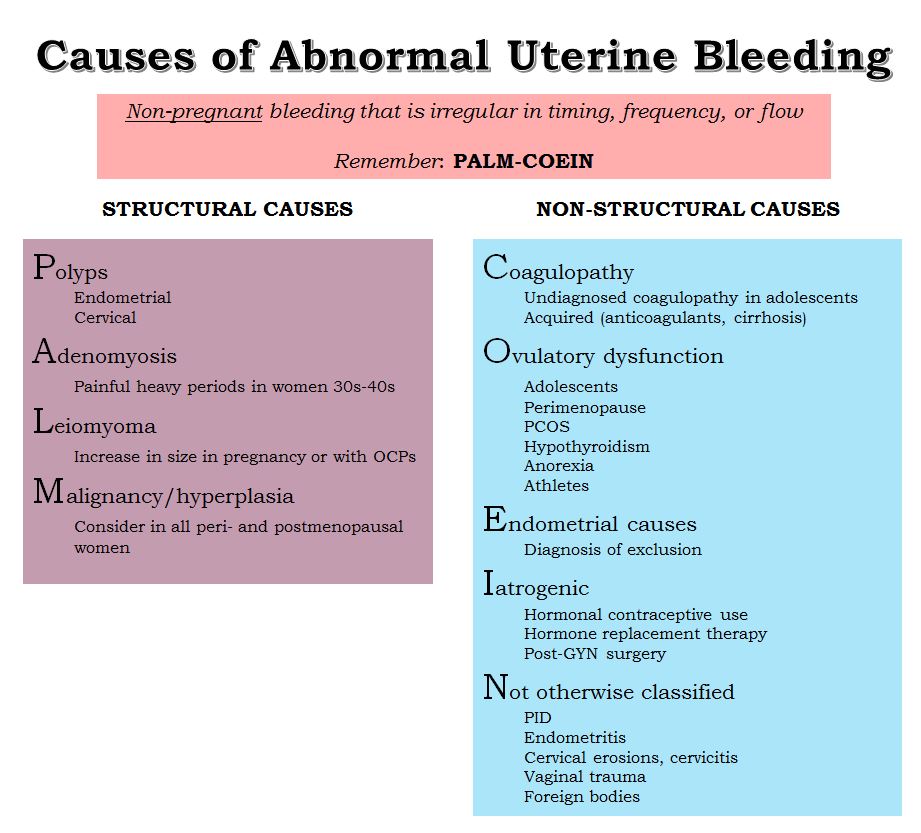
When your waters break, these vessels may be torn and cause vaginal bleeding. The baby can lose a life-threatening amount of blood.
Finding out the cause of bleeding in pregnancy
To work out what is causing the bleeding, you may need to have a vaginal or pelvic examination, an ultrasound scan or blood tests to check your hormone levels.
Your doctor will also ask you about other symptoms, such as cramp, pain and dizziness. Sometimes it might not be possible to find out what caused the bleeding.
If your symptoms are not severe and your baby is not due for a while, you'll be monitored and, in some cases, kept in hospital for observation.
How long you need to stay in hospital depends on the cause of the bleeding and how many weeks pregnant you are.
Being in hospital allows staff to keep an eye on you and your baby, so they can act quickly if there are further problems.
Find the answers to common health problems in pregnancy
Video: What should I do if I start bleeding during early pregnancy?
In this video, a midwife tells you what to do if you start to bleed during early pregnancy.
Media last reviewed: 20 March 2020
Media review due: 20 March 2023
|
1 week 2nd week 3rd week 4 week 5 week 6 week 7 week 8 week 9 week 10 week 11 week 12 week | 3 weeks pregnant
As a child grows:
HCG is an early pregnancy test. At weeks 1-2, it reaches values of 25 - 300 mU / ml, and at 3-4 weeks 1500 - 5000 mU / ml (in non-pregnant women, hCG < 5 mU / ml).
Meanwhile, amniotic fluid begins to collect around the accumulation of blastocytes, forming the amniotic sac. In the third week of pregnancy, your little baby receives oxygen and nutrients (and eliminates waste) through the primitive circulatory systems that connect the developing baby to the blood vessels in the uterine wall.
Inside the womb - implantation
Note: The development of each child in the womb may be slightly different. Our information gives you an overview of your baby's development.
How your life is changing:
Surprising facts: Early symptoms of pregnancy.
Some women feel pregnant even before the test is positive.
As tempting as it may be, don't rush to use a home pregnancy test. The vast majority of them do not work correctly on these terms. Things to do this week of pregnancy:
1. Buy a pregnancy test in case you don't have your period next week.
|
Pregnancy and menstruation | Kotex®
The question “Am I pregnant?” probably occurred at least once to the vast majority of heterosexual women who are sexually active.
Although the absence of periods is the most noticeable early symptom of pregnancy, many women have many questions when it comes to whether menstruation is possible during pregnancy.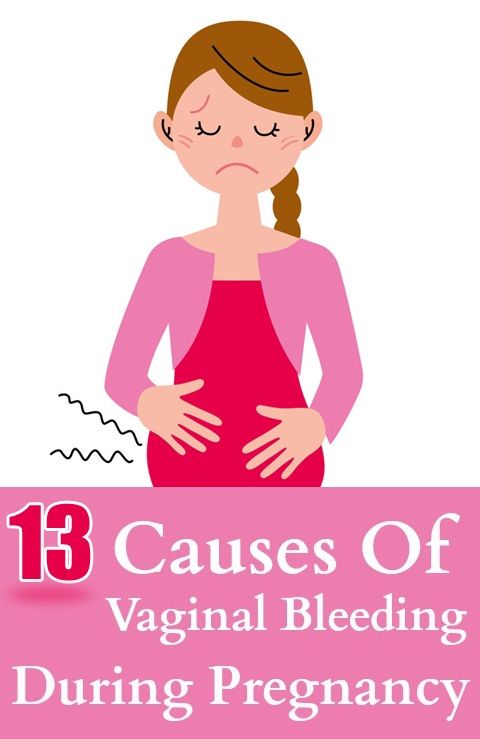
Is it possible to have periods during pregnancy?
No, they can't. If you have your period, it means you are not pregnant.
Menstruation occurs only if the monthly egg that comes out of the ovaries has not been fertilized.
If the egg is not fertilized, it leaves the uterus and is excreted along with the menstrual blood through the vagina.
The difference from pregnancy seems obvious at first glance, because during pregnancy there are no periods, and if you are not pregnant and are of reproductive age, then you have periods. nine0005
But some women have doubts about this, which are related to the fact that about 20-30% of pregnant women have irregular spotting, which in essence is not menstruation and differs from it: most often they have light pink or brown shade and not so abundant. Sometimes women confuse them with menstruation if they occur around the same time that menstruation is expected.
-
normal menstrual bleeding is light at first and then increases, and the blood becomes more saturated red
-
normal menstrual bleeding becomes less intense towards the end of menstruation, the color also becomes less intense
What can cause bleeding during early pregnancy?
Bloody discharge during pregnancy can be associated with many factors, each of which is a reason to urgently visit a doctor to rule out pathology. nine0160
Main causes of bleeding in the first trimester of pregnancy:
-
bleeding after attachment of the egg to the wall of the uterus
-
signs of threatened miscarriage
-
infections
-
ectopic pregnancy
Many women who experience this light bleeding go on to have normal pregnancies and give birth to healthy children, but in about a third such bleeding becomes more intense over time and eventually leads to a miscarriage. nine0005
nine0005
Unfortunately, there is no way to determine at home what caused such bleeding, so whenever such light bleeding occurs during pregnancy, you should consult your gynecologist for advice to rule out the possibility of pathology.
Important: if you are pregnant and have bleeding that becomes more intense and does not stop, accompanied by pain in the abdomen and lower back, you should immediately consult a doctor. nine0005
When do periods start after pregnancy?
Both after caesarean section and after vaginal delivery, women experience vaginal bleeding.
In the first weeks after childbirth, blood may clot and be more intense than normal periods, but then they become brown, light red and finally whitish.
This discharge is called lochia and usually lasts no more than 45 days after vaginal delivery and up to 60 days in women after caesarean section. Lochia begins immediately after childbirth, and menstruation occurs only when the level of the hormone prolactin in the woman's body drops, which causes the appearance of breast milk. nine0005
nine0005
If you are not breastfeeding, your periods usually return 6-8 weeks after delivery.
If you are breastfeeding, you may not have your period for as long as you are breastfeeding your baby.
During lochia, it is recommended to use pads rather than tampons.
Abortion and menses
Many questions about menstruation also arise in women who have experienced an unplanned pregnancy and have decided to have an abortion. nine0005
How this procedure will affect the body depends on many factors, most notably whether the abortion was medical or surgical. Bleeding after an abortion is normal, but in the truest sense of the word, menstruation is not.
Medical abortion
During a medical abortion, the doctor gives you two pills.
Usually, the first tablet is taken under the supervision of a doctor, in the clinic. After taking this pill, the endometrium of the uterus, to which the fertilized egg is attached, ceases to thicken, and pregnancy can no longer develop.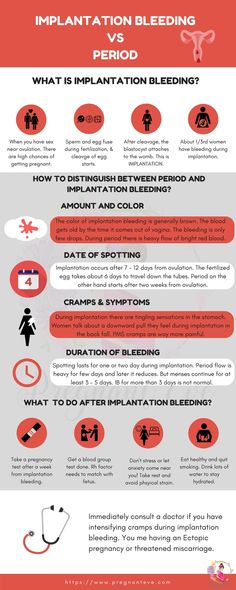 Some women begin to bleed at this point. nine0005
Some women begin to bleed at this point. nine0005
The woman then leaves the clinic and takes the second pill at home. After taking it, the endometrium begins to separate from the walls of the uterus and exit through the vagina. Such bleeding usually begins 0.5-4 hours after taking the pill. Usually, at 4-5 hours of bleeding, it becomes more intense, then its intensity decreases, and it becomes similar to normal menstruation.
Surgical abortion
nine0004 In the case of a surgical abortion, bleeding may begin immediately after the procedure, but in some women it begins after 3-5 days. Usually such bleeding is weaker than normal menstruation. Bleeding may stop or last until the next menstruation.How long does bleeding last after an abortion?
Bleeding after any type of abortion often lasts 1-2 weeks. Most often, after this period, it becomes quite insignificant, and in some women it completely disappears until the next menstruation. nine0005
nine0005
What should be the bleeding after an abortion?
Bleeding after an abortion is similar to normal menstruation, but the blood itself is often brown rather than red. After a medical abortion, it is usually more intense than after a surgical one.
You may notice blood clots and most of the time this is not a cause for concern, but if they continue to stand out against the background of heavy bleeding and continue for more than two hours, then your doctor should be contacted. nine0005
Many doctors do not recommend the use of tampons for at least two weeks after an abortion, during this period it is better to use hygienic gaskets.
First period after abortion
Abortion restarts the menstrual cycle.
Periods after it usually return to normal within 1-1.5 months after the procedure. The timing depends, among other things, on how long the pregnancy was terminated—as a rule, the longer the term, the more time it may take for the body to restore the usual level of hormones.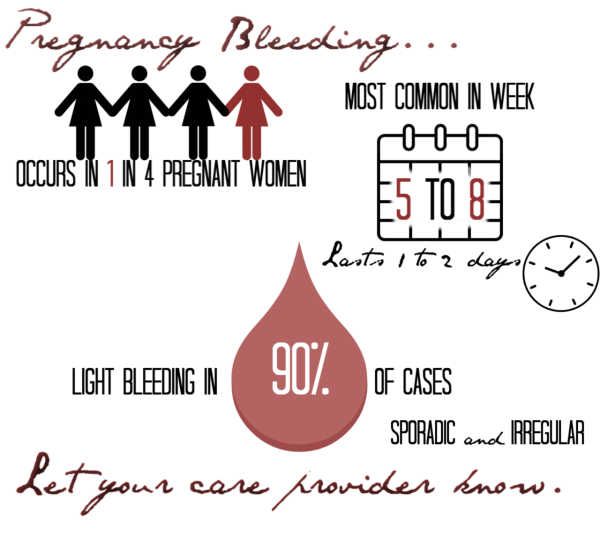
 As soon as the “ball” of cells (these cells are called blastocysts) is located in the uterus, the part of it, from which the placenta will develop later, begins to produce the pregnancy hormone hCG (human chorionic gonadotropin). HCG "instructs" the ovaries to stop producing eggs, and also provides the synthesis of progesterone and estrogens necessary to maintain pregnancy. HCG stimulates the growth of the placenta, supports the existence of the corpus luteum until the "fetus-placenta" complex acquires the ability to independently form the necessary hormonal background. nine0005
As soon as the “ball” of cells (these cells are called blastocysts) is located in the uterus, the part of it, from which the placenta will develop later, begins to produce the pregnancy hormone hCG (human chorionic gonadotropin). HCG "instructs" the ovaries to stop producing eggs, and also provides the synthesis of progesterone and estrogens necessary to maintain pregnancy. HCG stimulates the growth of the placenta, supports the existence of the corpus luteum until the "fetus-placenta" complex acquires the ability to independently form the necessary hormonal background. nine0005  The placenta is not yet developed enough to take on this task until the end of next week. nine0005
The placenta is not yet developed enough to take on this task until the end of next week. nine0005  Earliest signs include:
Earliest signs include: 












